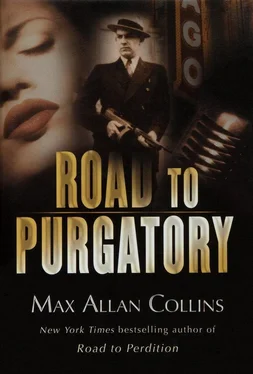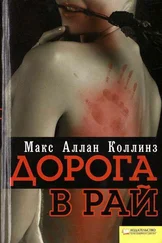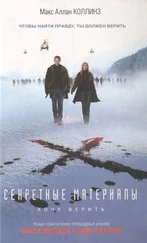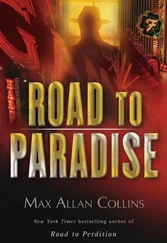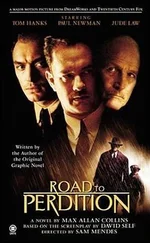Nose to nose, O’Sullivan said to the trembling Connor, “Don’t ever bring my family into this. Ever. Or I’ll kill you. Understood?”
“Y-yes...”
O’Sullivan drew back a step but did not let go. “I won’t tell your father because it would break his heart to know what a vicious little coward his son is.”
“I... I appreciate that, Mike... It’s... it’s white of you.”
“I don’t know who that boy is or why you cut him down. But you will send ten thousand dollars of your money to his family, anonymous.”
“What?”
“That’s the price of my silence.”
“...All right. All right — god- damnit! ”
“I want to see the cash, Connor. I want to see it go into the envelope. I want to see it mailed.”
“Okay, okay!”
O’Sullivan took another step back, his hands still on Connor’s lapels. “Now... if you don’t mind, I have to get over to city hall. Your old man’s ass needs saving.”
And O’Sullivan again shoved Connor against the wall, and headed briskly out of the alley.
But, as Connor was stooping to pick up the .38, O’Sullivan paused at the alley’s mouth to look back and say, “You might want to get over to city hall yourself and help keep the crowd stirred. Hanging around a murder scene is stupid, Connor... even for you.”
And O’Sullivan was gone.
Connor picked up the .38, shoved it in the holster under his arm, then bent over and put his hands on his knees and breathed deep, breathed deep again, and again.
Fucker , Connor thought, and smiled. Got the best of you, you self-righteous fucker ...
Straightening, he glanced back at the crumpled birthmarked boy. “And you, punk. And you.”
And Connor, walking with renewed confidence, strolled out across the square, heading over toward city hall, where it was getting pretty damn noisy.
A disgusted O’Sullivan entered the Sherman Hotel and crossed quickly to the bank of telephone booths along the left-hand wall. Tumbleweed might have rolled between the overstuffed furniture and potted plants, so empty was the lobby.
Behind the check-in desk, the skeletal clerk in bow tie and suspenders looked fidgety, fearing no doubt that the riot would spill inside; the clerk recognized O’Sullivan but said nothing, though his eyes followed the lobby’s only other inhabitant. The hotel’s coffee shop, the Java House — which served gin in its coffee cups — had shuttered, as had other speaks in the downtown district, afraid of the contagious chaos that had emerged from Market Square.
Inside a booth, O’Sullivan dropped a nickel in and dialed a number that required referring to neither city phone directory nor his little black book (with the names and numbers of politicians and fixers, not skirts).
John Looney’s top lieutenant knew the unlisted home phone number of Police Chief Tom Cox by heart.
O’Sullivan listened as the phone rang, going unanswered; he wouldn’t have been surprised if the thing had been off the hook, since Cox no doubt knew by now that rioters were at the gates of his castle, and wanted to stay well away.
Tom Cox was a stocky sandy-haired copper who’d come up through the ranks. His reputation as a tough bull and an advocate of the third degree was epitomized by his favorite catchphrase: “Throw the bum in the slammer.”
But shortly after achieving the position of chief, Cox became a John Looney associate, receiving a cut from all brothels, gambling, and bootlegging. Whores were the man’s weakness, and Helen Van Dale had enough on the chief to keep him in Looney’s control a few days past forever.
A police chief in Rock Island could serve under any number of mayors; so a long-term relationship with Tom Cox had benefits beyond those of any mere office holder.
Just when O’Sullivan was about to give up, a raspy voice answered: “Yeah, what? I’m busy!”
“Tom, it’s Mike O’Sullivan. You know what’s going on down at city hall?”
The response was weary and wry: “Recall rally’s gettin’ a little out of hand, I hear.”
“Laugh it off if you like, Tom. But they broke into a couple hardware stores and helped themselves to guns and bullets. You’re minutes away from a shooting war.”
“ Christ ... Well, if you think I’m drivin’ over there to have a little of it, Mike, you’re out of your goddamn mind.”
O’Sullivan’s voice took on an edge. “Tom — did you know what Schriver had in mind for John?”
“Of course not,” the chief growled.
But it wasn’t convincing.
“Tom, if you tell me the truth, I’ll understand. You’re between a rock and a hard place, with your allegiance to John, same time working under Schriver. So just tell me.”
“Mike, I didn’t know.”
Still not sold, O’Sullivan said, “If you lie to me, Tom... I’ll be unhappy.”
A long silence followed.
Then, a sniveling Cox returned to the wire: “I figured they’d just work him over a little, throw a scare into the Old Man. Only, from what my captain down there says, they’ve half-killed the poor sod.”
“If those rioters get inside that building,” O’Sullivan said, slowly, carefully, “and see what Schriver and his bully boys have done to John Looney, they’ll burn the place down.”
“Anarchy. Anarchy. How could it come to this? How could this happen?”
“I have no idea,” O’Sullivan lied.
“Mother of mercy, what can we do?”
“Call your captain and have him let me and Emeal Davis in. We’ll fetch John.”
“Mike, if you haul a bloody and battered John Looney out of there, that crowd’ll blow a gasket!”
“Not if you have a Black Maria waiting in the police garage. We’ll haul the Old Man over to St. Anthony’s. If the rioters do storm your bastille, Tom, well, they won’t find a half-dead John Looney inside, to inflame them further.”
Another long silence followed.
Then Cox said, “No better plan comes to me. Mike, we’ll try it your way. Give me five minutes.”
O’Sullivan exited the booth and the hotel, meeting up with Emeal Davis out front, as they’d prearranged. He filled Davis in, heading across the now all-but-deserted Market Square, scattered with discarded recall brochures, toward the hullabaloo. Traffic had disappeared, as if every vehicle in downtown Rock Island had been sucked into the sky.
As the two Looney soldiers approached city hall, they found Third Avenue and Sixteenth Street clogged with humanity, the full moon conspiring with streetlamps to throw a yellowish ivory glow on a surreal urban landscape, the surrounding buildings black against the gray heavens, looming like giant tombstones. It seemed to O’Sullivan that these men had become less than themselves, and more, swallowed up in the breathing, moving organism that was a mob.
“This thing,” Emeal yelled into Mike’s ear (and yet it was like a whisper), “has got a mind of its own.”
“Nothing to be done but live with it,” O’Sullivan yelled. “And use it... for John.”
From the stormy sea of bobbing heads and upraised fists — holding weapons, bricks, and boards, and handguns and rifles — an ongoing rumble of dissatisfaction erupted every few moments into shouted accusations and yelled admonitions. Eyes were wild, gums bared over teeth; the jungle beneath the skin of civilization was showing through.
At the front of city hall, a short flight of stairs rose on either side to the double doors where Looney, O’Sullivan, and Davis had earlier entered; tucked under the porch-like landing were another set of double doors, leading into the police station. From these poured a contingent of cops in uniform, with riot guns, shotguns, and handguns, streaming out in twin ribbons of blue, fanning out either way across the face of the building.
Читать дальше
